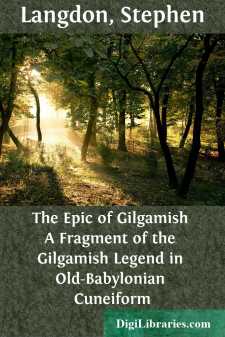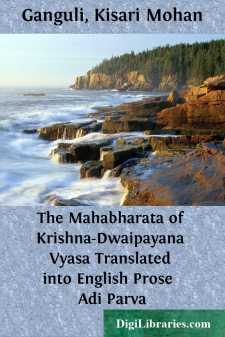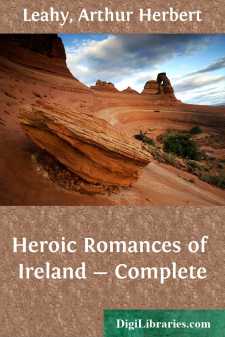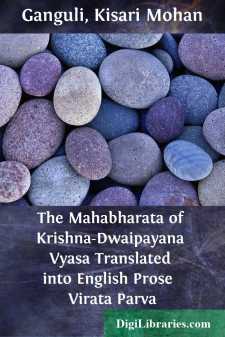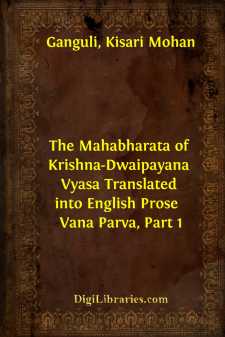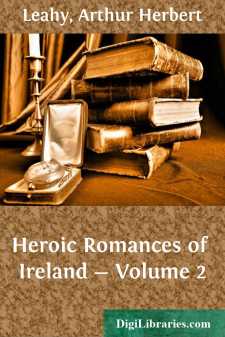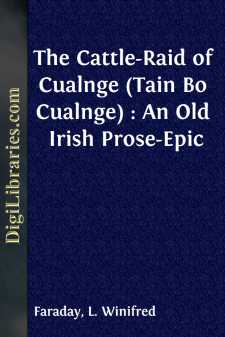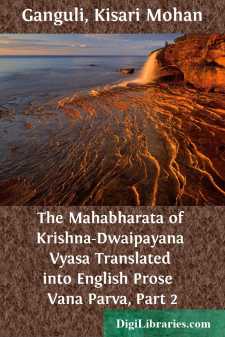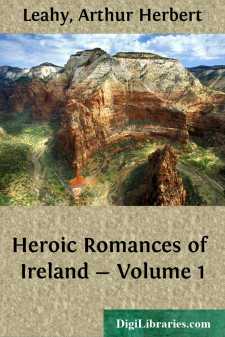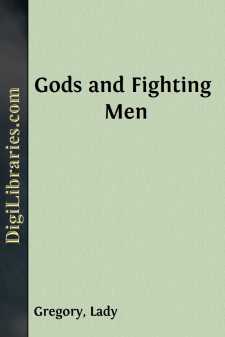Literary Collections
- American 84
- Ancient, Classical & Medieval
- Asian 1
- Australian & Oceanian 1
- Canadian 55
- Continental European 121
- English, Irish, Scottish, Welsh 179
- Essays 160
- General 24
- Letters 46
- Middle Eastern 1
Ancient, Classical & Medieval Books
Sort by:
by:
Stephen Langdon
Introduction In the year 1914 the University Museum secured by purchase a large six column tablet nearly complete, carrying originally, according to the scribal note, 240 lines of text. The contents supply the South Babylonian version of the second book of the epic ša nagba imuru, “He who has seen all things,” commonly referred to as the Epic of Gilgamish. The tablet is said to have been found at...
more...
SECTION I Om! Having bowed down to Narayana and Nara, the most exalted male being, and also to the goddess Saraswati, must the word Jaya be uttered. Ugrasrava, the son of Lomaharshana, surnamed Sauti, well-versed in the Puranas, bending with humility, one day approached the great sages of rigid vows, sitting at their ease, who had attended the twelve years' sacrifice of Saunaka, surnamed Kulapati,...
more...
At a time like the present, when in the opinion of many the great literatures of Greece and Rome are ceasing to hold the influence that they have so long exerted upon human thought, and when the study of the greatest works of the ancient world is derided as "useless," it may be too sanguine to hope that any attention can be paid to a literature that is quite as useless as the Greek; which deals...
more...
SECTION I (Pandava-Pravesa Parva) OM! Having bowed down to Narayana, and Nara, the most exalted of male beings, and also to the goddess Saraswati, must the word Jaya be uttered. Janamejaya said, "How did my great-grandfathers, afflicted with the fear of Duryodhana, pass their days undiscovered in the city of Virata? And, O Brahman, how did the highly blessed Draupadi, stricken with woe, devoted to...
more...
SECTION I (Aranyaka Parva) Om! Having bowed down to Narayana, and Nara the foremost of male beings, and the goddess Saraswati also, must the word Jaya be uttered. Janamejaya said, "O thou foremost of regenerate ones, deceitfully defeated at dice by the sons of Dhritarashtra and their counsellors, incensed by those wicked ones that thus brought about a fierce animosity, and addressed in language...
more...
INTRODUCTION The Tain bo Fraich, the Driving of the Cattle of Fraech, has apparently only one version; the different manuscripts which contain it differing in very small points; most of which seem to be due to scribal errors. Practically the tale consists of two quite separate parts. The first, the longer portion, gives the adventures of Fraech at the court of Ailill and Maev of Connaught, his...
more...
INTRODUCTION The Cattle-Raid of Cualnge [Note: Pronounce Cooley] is the chief story belonging to the heroic cycle of Ulster, which had its centre in the deeds of the Ulster king, Conchobar Mac Nessa, and his nephew and chief warrior, Cuchulainn Mac Sualtaim. Tradition places their date at the beginning of the Christian era. The events leading up to this tale, the most famous of Irish mythical stories,...
more...
SECTION CXLV (continued from previous e-book) And the ruddy geese, and the gallinules and the ducks and the karandavas and the plavas and the parrots and the male kokilas and the herons in confusion flew in all directions, while some proud elephants urged by their mates, as also some lions and elephants in rage, flew at Bhimasena. And as they were distracted at heart through fear, these fierce animals...
more...
At a time like the present, when in the opinion of many the great literatures of Greece and Rome are ceasing to hold the influence that they have so long exerted upon human thought, and when the study of the greatest works of the ancient world is derided as "useless," it may be too sanguine to hope that any attention can be paid to a literature that is quite as useless as the Greek; which deals...
more...
by:
Lady Gregory
CHAPTER I. THE FIGHT WITH THE FIRBOLGS It was in a mist the Tuatha de Danaan, the people of the gods of Dana, or as some called them, the Men of Dea, came through the air and the high air to Ireland. It was from the north they came; and in the place they came from they had four cities, where they fought their battle for learning: great Falias, and shining Gorias, and Finias, and rich Murias that lay to...
more...


